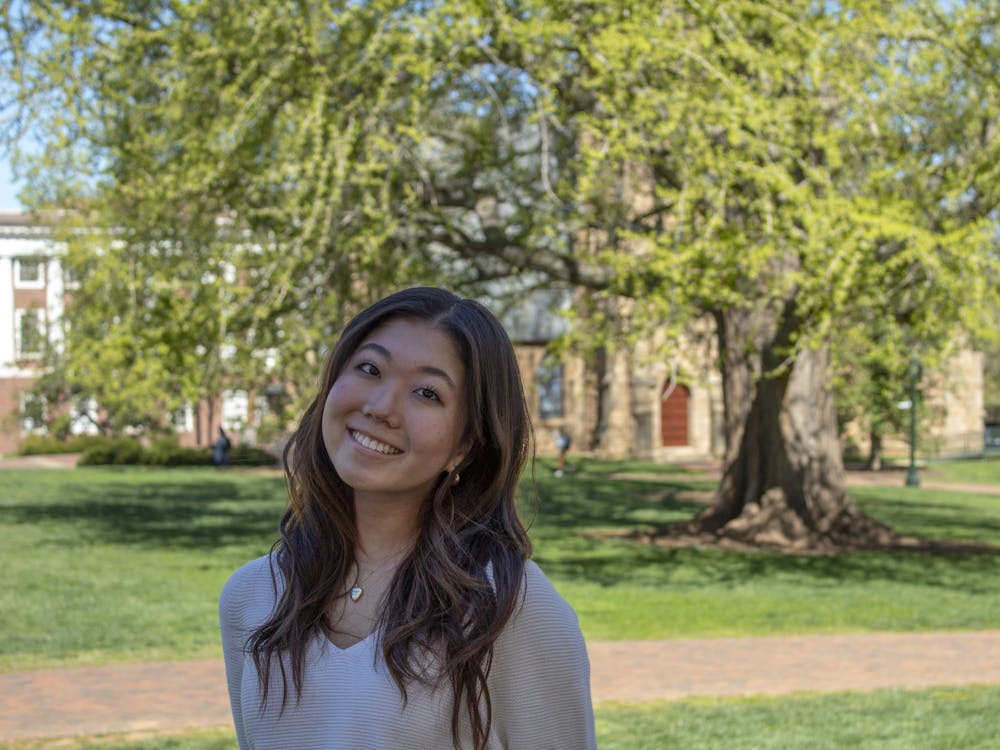Honor and prestige, two concepts immediately associated with living on the Lawn. With their gold engraved nameplates, wood-burning fireplaces and requisite rocking chairs, these rooms reward their undergraduate occupants with housing steeped in tradition.
Yet just past the Lawn, in the outer realms of Mr. Jefferson's Academical Village, sit rows of rooms equally steeped in tradition, although the graduate housing is hardly acknowledged. Welcome to the Range.
On the Housing Division's Web site, the Range and the Lawn are described together as "the center of the University," both geographically and socially. While the Lawn is known for its vibrant and active community, the Range lacks a community altogether, according to Range resident and second-year Law student Christopher Colby.
"Every single person I've spoken to thought it was an incredible honor to live on the Range, and it could be, and it should be, but it's not," he said.
Upon moving to the Range in August, Colby said he was astounded to observe that some of his neighbors did not even occupy the rooms they paid for.
Eston Melton, Range resident and first-year Curry graduate student, noticed the same thing. According to Melton, one of the rooms in the South West area of the Range is paid for by a group of law students who use it only as a place to tailgate before football games.
Having graduated from the University and been a Lawn resident in 2001, Melton secured his room expecting that "one of the let downs of living on the Range was that it would be without the sense of community I'd had on the Lawn."
Melton said he believes the University could do more to encourage camaraderie within the Range.
"Considering this is part of our Academical Village, to not have a vested interest from the administration is a disappointment," he said.
Any social interaction and communication between Range occupants is carried out purely on the initiative of its individual residents. Unlike other on-Grounds housing, the Range has no resident coordinator to e-mail information or encourage community gatherings. As a result, residents tend to keep to themselves -
if they are there at all.
Colby, with the support of Melton and other fellow Range residents, hopes to change the present pattern. He has laid out a three-part proposal aimed at encouraging Range "occupancy," "community" and "legitimacy." In it, Colby offers suggestions including the establishment of an application process to select residents, a Range Council to initiate programming and a Range Liaison to aid communication.
This past week he sent that proposal to a number of University officials, including the Office of Residence Life, Housing Division and Student Council.
In describing the current state of their neighborhood, both Colby and Melton likened Range disinterest to views of the Lawn in the 1960s. Forty years ago, the Housing Division oversaw Lawn room placement and the rooms carried much less significance to applicants. Now, residence on the Lawn requires selection through a competitive, often criticized, application and selection process.
In order to live on the Range however, graduate students need only check the appropriate box on a Housing Request Form.
Colby said he believes in giving students control over the allocation of Lawn spots, the University made a statement about the value of self-governance, but that statement should have included the Range.
"Letting student self-governance play out will result in the best graduate residential community in the United States," he said.
Key to improving that community is ensuring that those who live on the Range will play active roles in its maintenance, Melton said.
"One of the ideas is that if we make it seem like a competitive honor, then we'll get people genuinely interested in living here," he added.
Colby also said he hopes the recommendations outlined in the proposal will help unite not just Range residents, but all graduate students.
"The graduate community as a whole exists in little disparate communities," Colby said. The Range "has the potential to be a nexus for the various graduate programs here."
Before the Range plan moves from proposition to fact, agreements must be reached with University administrators.
"I'm willing to put the work and other people are willing to work," Colby said. "If the administration stalls, the window of opportunity closes."
Chief Housing officer, Mark Doherty, will meet with Colby on Friday to discuss the proposal in detail, but he said his view of the plan already is "positive."
"I think lending support to that community is an excellent initiative," Doherty said. "From my own perspective, I don't see any stumbling blocks."
While he has no major conceptual concerns, Doherty said the Housing Division did have its own suggestions. "One of the things we've been thinking about is identifying a physical place in the Range area to create a gathering place for Range residents -
a physical location where the community can come together," Doherty said.
When questioned about the time frame for the proposed project, Doherty displayed more confidence than even Colby. While Colby had hoped the plan would be enacted by 2004, Doherty said he thought the review process would be relatively speedy.
"Optimistically, something could be in place for this semester," he said.
As it stands now, a walk along the Range is a lonely one -
closed doors and absent neighbors. It appears this seclusion might soon be a thing of the past.




